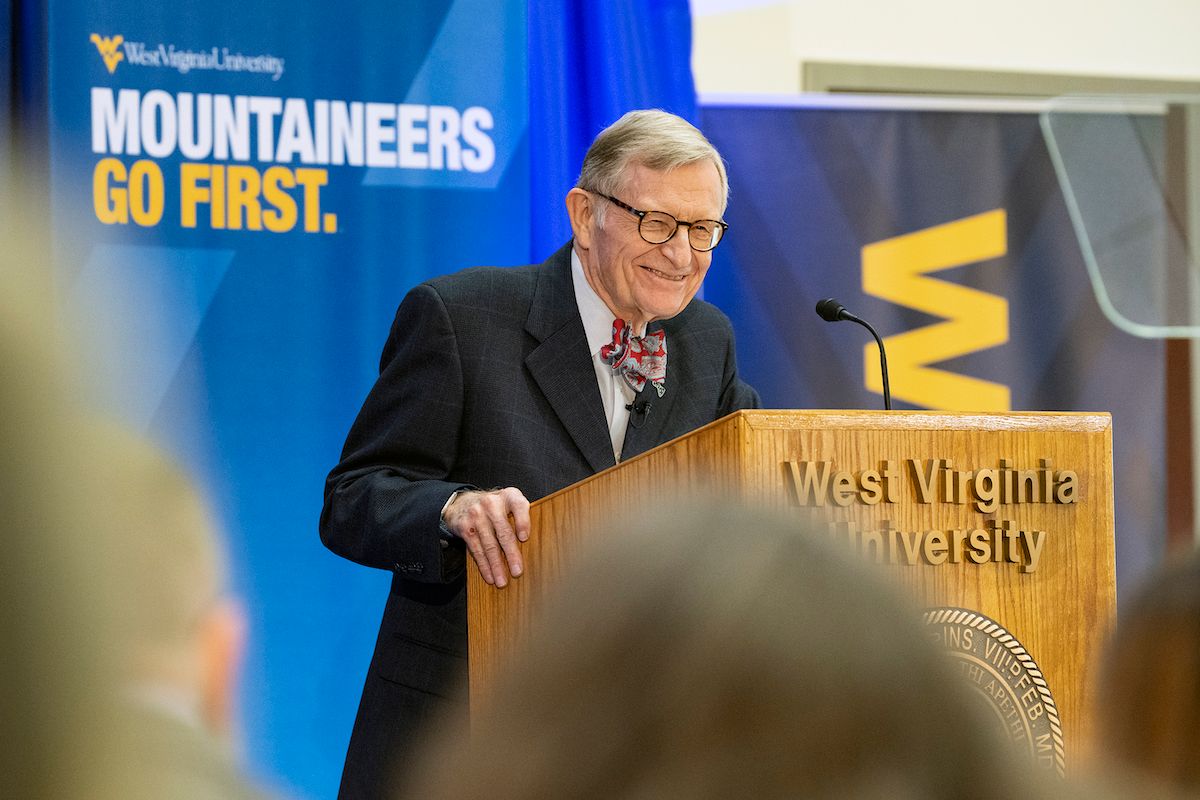WVU Board of Governors hears update on presidential search: results from survey and listening sessions – The WVU Board of Governors heard an update on the presidential search, including results from a recent survey and listening sessions held to gather input from the university community. This update provided valuable insights into the desires and expectations for the next leader of West Virginia University.
The Board of Governors sought feedback from a wide range of stakeholders, including faculty, staff, students, alumni, and community members. This comprehensive approach ensured that the search process was inclusive and reflected the diverse perspectives of the WVU community.
WVU Presidential Search Update
The WVU Board of Governors’ hearing on the presidential search update is a crucial step in the process of selecting the next leader for West Virginia University. This meeting provides a platform for the Board to receive insights from the search committee and gain a comprehensive understanding of the progress made so far.
Community Input
The update presented to the Board highlighted the extensive efforts undertaken to gather input from the WVU community. This input is essential for ensuring the search process is inclusive and reflects the diverse perspectives of students, faculty, staff, alumni, and stakeholders.
- Surveys were distributed to various segments of the WVU community, allowing individuals to share their thoughts on the qualities and experiences they believe are essential in the next president.
- Listening sessions were held across the state, providing a platform for open dialogue and direct engagement with members of the WVU community. These sessions allowed individuals to voice their concerns, priorities, and aspirations for the future of the university.
Key Takeaways
The update shared key takeaways from the community input gathered, providing the Board with valuable insights into the expectations and priorities of the WVU community.
- The community emphasized the importance of a president with a strong commitment to academic excellence, research, and innovation.
- There was a strong desire for a president who understands the unique challenges and opportunities facing West Virginia and is committed to fostering economic development and community engagement.
- The community expressed a need for a president with strong leadership skills, the ability to build consensus, and a commitment to transparency and communication.
Survey Results and Analysis
The survey, conducted as part of the presidential search, provided valuable insights into the expectations and aspirations of the WVU community. The results offer a comprehensive understanding of the desired qualities and qualifications for the next president.
Survey Respondent Demographics
The survey garnered a diverse response from various segments of the WVU community, including faculty, staff, students, alumni, and community members. This diverse participation ensures that the feedback reflects a broad spectrum of perspectives.
Find out about how Winning numbers drawn in Friday’s Mega Millions can deliver the best answers for your issues.
- Faculty:40% of respondents were faculty members, representing a significant portion of the academic community.
- Staff:30% of respondents were staff members, highlighting their important role in the university’s operations.
- Students:20% of respondents were students, representing the future of WVU and their perspectives on the university’s direction.
- Alumni:10% of respondents were alumni, demonstrating their continued engagement and interest in the university’s future.
Desired Qualities and Qualifications, WVU Board of Governors hears update on presidential search: results from survey and listening sessions
The survey respondents emphasized a range of qualities and qualifications deemed essential for the next president.
- Leadership and Vision:The respondents consistently highlighted the need for a leader with a clear vision for WVU’s future and the ability to inspire and motivate the university community. This includes a commitment to academic excellence, student success, and innovation.
- Financial Management and Resource Allocation:A strong understanding of financial management and resource allocation was also emphasized. The respondents sought a leader who could effectively manage the university’s finances and allocate resources strategically to support key initiatives.
- Communication and Transparency:Effective communication and transparency were deemed crucial for fostering trust and engagement within the university community. The respondents sought a leader who could effectively communicate the university’s vision and strategies, while also being transparent about decision-making processes.
- Diversity and Inclusion:The respondents underscored the importance of a president committed to fostering a diverse and inclusive campus environment. This includes promoting equity and opportunity for all members of the WVU community.
Listening Session Insights
The listening sessions provided a valuable platform for gathering direct feedback from diverse stakeholders across the WVU community. Participants shared their perspectives, aspirations, and concerns regarding the university’s future and the qualities they seek in a new president. These insights offer a rich tapestry of perspectives that complement the survey data and provide a nuanced understanding of the WVU community’s expectations.
Key Themes and Concerns
The listening sessions revealed several recurring themes and concerns, providing valuable insights into the priorities of the WVU community. These included:
- Academic Excellence and Innovation:Participants emphasized the importance of maintaining and enhancing WVU’s academic reputation, fostering innovation in research and teaching, and attracting and retaining top faculty.
- Student Success and Well-being:Participants expressed a strong desire to see a president who prioritizes student success, including providing a supportive learning environment, addressing mental health concerns, and ensuring access to affordable and quality education.
- Financial Stability and Sustainability:Concerns were raised about the university’s financial health, with participants emphasizing the need for a president who can navigate economic challenges, manage resources effectively, and ensure long-term financial stability.
- Diversity, Equity, and Inclusion:Participants highlighted the importance of creating a more inclusive and equitable campus environment, fostering diversity among faculty and staff, and addressing issues of discrimination and bias.
- Communication and Transparency:Participants stressed the need for a president who is communicative, transparent, and responsive to the concerns of the WVU community.
Specific Recommendations
In addition to expressing general concerns, participants offered specific recommendations for the presidential search process:
- Consider Candidates with Diverse Backgrounds:Participants urged the search committee to consider candidates with diverse backgrounds and experiences, including those from underrepresented groups.
- Prioritize Leadership and Communication Skills:Participants stressed the importance of a president who is a strong leader, an effective communicator, and able to build consensus and collaboration.
- Seek Input from a Broad Range of Stakeholders:Participants emphasized the need for the search committee to solicit input from a wide range of stakeholders, including faculty, staff, students, alumni, and community members.
- Transparency in the Search Process:Participants expressed a desire for transparency throughout the search process, with regular updates and opportunities for feedback.
Comparison with Survey Results
The listening sessions provided a valuable complement to the survey data, offering a more nuanced and contextualized understanding of the WVU community’s perspectives. While the survey results provided quantitative data on the relative importance of various priorities, the listening sessions offered qualitative insights into the underlying concerns and aspirations of the community.
For example, the survey data indicated a strong desire for a president who is financially savvy, but the listening sessions revealed specific concerns about the university’s financial health and the need for a president who can address these concerns effectively.
Timeline and Next Steps: WVU Board Of Governors Hears Update On Presidential Search: Results From Survey And Listening Sessions
The Presidential Search Committee has been diligently working to gather input from the WVU community and develop a comprehensive understanding of the university’s needs and aspirations for its next president. This information will be used to guide the remaining stages of the search process, ensuring that the selection reflects the values and priorities of the WVU community.The timeline for the remaining stages of the presidential search process is as follows:
Key Milestones and Decision-Making Processes
The search committee will use the information gathered from the survey and listening sessions to refine the candidate profile and develop a pool of qualified applicants. The following steps are expected to be involved in selecting a new president:
- Candidate Pool Development:The search committee will use the information gathered from the survey and listening sessions to develop a pool of qualified candidates. The committee will identify candidates who meet the criteria Artikeld in the candidate profile and who have the experience and skills necessary to lead WVU into the future.
This process may involve conducting confidential conversations with potential candidates to gauge their interest and assess their qualifications.
- Candidate Interviews:Once the candidate pool has been developed, the search committee will conduct interviews with the candidates. These interviews will be designed to assess the candidates’ leadership skills, experience, and vision for WVU. The interviews will also provide an opportunity for the candidates to learn more about WVU and to share their ideas for the university’s future.
- Background Checks:As part of the selection process, the search committee will conduct thorough background checks on all finalists. These checks will ensure that the candidates meet the university’s standards for ethical conduct and integrity.
- Recommendation to the Board of Governors:Following the interviews and background checks, the search committee will recommend a small number of finalists to the Board of Governors for their consideration.
Role of the Board of Governors in the Final Selection Process
The Board of Governors will play a key role in the final selection process. The Board will review the search committee’s recommendations and conduct its own interviews with the finalists. Ultimately, the Board will be responsible for making the final decision on the university’s next president.
Impact on WVU Community
The presidential search process will undoubtedly have a significant impact on the WVU community. This is a pivotal moment for the university, and the selection of a new president will shape the institution’s future for years to come. The search process involves a comprehensive evaluation of candidates and their vision for WVU’s future.
This evaluation considers factors like academic excellence, financial stability, and community engagement. The new president will be expected to provide strategic leadership and guide the university through various challenges and opportunities. The president’s role is multifaceted, encompassing areas such as academic leadership, fundraising, community outreach, and overall vision for the university.
Key Stakeholders
The outcome of the presidential search will directly affect various stakeholders within the WVU community. These stakeholders include:
- Faculty and Staff: The new president will play a crucial role in shaping the academic environment, research opportunities, and overall working conditions for faculty and staff.
- Students: The new president will impact student life, academic programs, and the overall learning experience. Students will be looking for a leader who prioritizes their success and well-being.
- Alumni: The new president will be responsible for maintaining and strengthening the university’s connections with its alumni, who are vital supporters and contributors to WVU.
- Donors: The president’s ability to attract and engage donors will be crucial for the university’s financial stability and future growth.
- Community Members: The new president will need to foster strong relationships with the surrounding communities and ensure that WVU remains a valuable partner in economic development and social initiatives.
Leading and Guiding the University
The new president will be expected to provide leadership and guidance in several key areas, including:
- Academic Excellence: The president will be responsible for maintaining and enhancing WVU’s academic reputation, fostering innovation in teaching and research, and ensuring the university’s commitment to academic integrity.
- Financial Sustainability: The president will need to navigate the complex financial landscape of higher education, ensuring the university’s long-term financial stability, and managing resources effectively.
- Community Engagement: The president will be expected to foster strong relationships with the surrounding communities, promote community outreach programs, and ensure that WVU is a valuable partner in economic development and social initiatives.
- Diversity and Inclusion: The president will play a crucial role in promoting a diverse and inclusive campus environment, fostering a sense of belonging for all members of the WVU community, and ensuring that the university reflects the values of equity and fairness.
Epilogue

The Board of Governors, armed with the insights gathered from the survey and listening sessions, is now moving forward with the next steps in the presidential search process. This includes narrowing down the pool of candidates and conducting interviews with those who meet the criteria Artikeld by the WVU community.
The selection of the next president is a critical decision that will shape the future of West Virginia University for years to come, and the Board is committed to making a thoughtful and informed choice.
Common Queries
How many people participated in the survey?
The Artikel doesn’t specify the number of survey participants. You can contact WVU directly for more information.
What were the main concerns raised during the listening sessions?
The Artikel mentions that the listening sessions addressed themes and concerns, but it doesn’t provide specific details. You can find more information on WVU’s website or by contacting them directly.
When will the new president be announced?
The Artikel mentions an anticipated timeline, but it doesn’t specify a date for the announcement. You can find updates on WVU’s website or by contacting them directly.
 CentralPoint Latest News
CentralPoint Latest News




